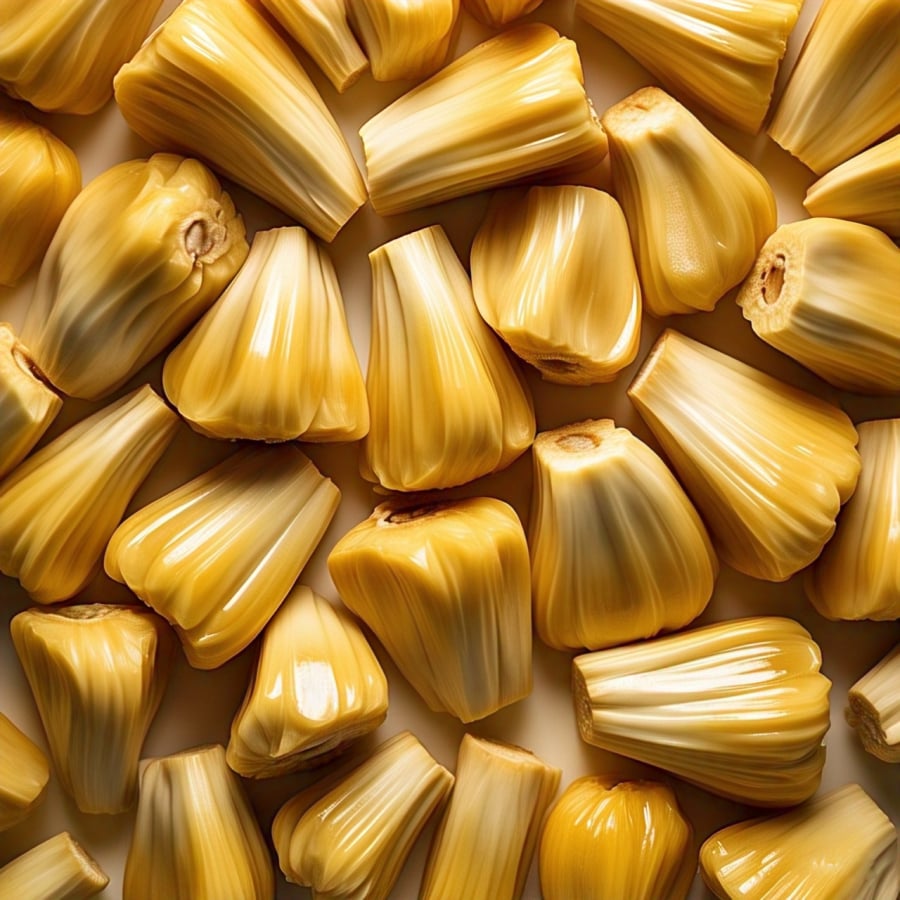Jackfruit: A Tropical Delight with a Catch
Jackfruit is a uniquely fragrant and alluring fruit. Its sweet, ripe bulbs captivate many. According to Kinh Te Do Thi, citing information from the United States Department of Agriculture (USDA), 100 grams of jackfruit provides 157 calories, 2.5 grams of fiber, 2.8 grams of protein, 1 gram of fat, and 38 grams of carbohydrates. Notably, jackfruit offers a higher protein content than most other fruits. It is also rich in vitamins C and B6, as well as minerals like potassium, calcium, and iron—all essential for the body’s well-being.
However, jackfruit is not a fruit for everyone. Nutrition and health experts offer words of caution for certain individuals who should refrain from indulging in this tasty treat. The following are cases where one should avoid consuming jackfruit, paying close attention to these warnings.
Who Should Avoid Eating Jackfruit?
- Diabetics
The distinctively sweet taste of jackfruit bulbs is due to their high sugar content, making it unsuitable for diabetics. The fructose and glucose levels in jackfruit are considerably high and can cause a rapid spike in blood sugar levels. Diabetics must meticulously manage their blood glucose levels and carefully consider their daily diet. Therefore, consuming fruits with high sugar content like jackfruit can be detrimental. If diabetics wish to enjoy jackfruit, they should limit themselves to a few bulbs and consult their physician for specific guidance.
- Individuals with Fatty Liver Disease
Those suffering from fatty liver disease should also refrain from eating jackfruit due to its high sugar and calorie content, which can exacerbate the condition by contributing to fat accumulation in the liver. Instead, individuals with this condition should opt for low-sugar fruits like grapefruit and apples to prevent complications and dangerous health consequences.

- Individuals with Kidney Disease
People with kidney disease should also exercise caution when consuming jackfruit due to its high potassium levels. As kidney function declines, the body struggles to eliminate excess potassium, leading to potential heart rhythm disorders and severe health issues.
- Those Prone to Internal Heat, Boils, and Constipation
Jackfruit tends to induce internal heat in the body, so individuals prone to conditions like hot flashes, boils, constipation, or acne vulgaris should refrain from consuming it.
- Individuals Trying to Lose Weight
While jackfruit is rich in fiber and provides a sense of fullness, its high calorie and sugar content can easily lead to weight gain. For those aiming to shed pounds, it’s best to opt for lower-calorie fruits like guava or apples.
Precautions When Eating Jackfruit
It is advisable to avoid consuming jackfruit on an empty stomach, as it may cause bloating and indigestion. Instead, eat jackfruit one to two hours after a meal.
Given its high-calorie content, jackfruit should be enjoyed in moderation to prevent weight gain. For individuals with chronic illnesses, limiting consumption to 3-4 bulbs per day is recommended.
In conclusion, jackfruit is a delectable and fragrant fruit, but it may not be suitable for everyone. Certain individuals, such as those prone to internal heat, acne, or those aiming to lose weight, are advised to steer clear of this fruit. For those who still wish to indulge, moderation is key, and consulting a physician beforehand is always a prudent step to ensure that jackfruit does not adversely affect one’s health.
































